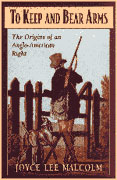The Public's Health: A Narrative History Of Health And Disease In Arkansas
Arkansas Times Press, 2013
eISBN: 978-1-61075-546-7 | Paper: 978-1-55728-661-1
See other books on: Arkansas | Disease | Diseases | Narrative History | South (AL, AR, FL, GA, KY, LA, MS, NC, SC, TN, VA, WV)
See other titles from Arkansas Times Press
eISBN: 978-1-61075-546-7 | Paper: 978-1-55728-661-1
ABOUT THIS BOOK
ABOUT THIS BOOK
August 1st, 1878 The preceding winter had been mild, the spring and summer was hot and rainy; there were mosquitoes everywhere. "Yellow Jack" had been reported in New Orleans. William Warren, a steamboat crewman at Presidents Island just south of Memphis, left his ship and entered the city. One day later he was admitted to the City Hospital and two days hence he was dead of yellow fever. When word got out of a yellow fever death in the city the citizens began to flee. Schools and churches closed their doors. Passenger boat services from New Orleans were forced to disembark their passengers on the Arkansas side. In the end 5,100 people died in the city of Memphis. The hardest-hit towns in Arkansas were Helena, Hopefield (West Memphis) and Augusta on the White River. Trains and boats entering the state of Arkansas were quarantined. Many little towns across the Delta established "shotgun" quarantines: if you weren’t recognized by the men manning the barrier, you were asked to leave through the sights of a gun. Smallpox,malaria, tuberculosis, cholera, yellow fever were ever present dangers in nineteenth and early twentieth century Arkansas. This story is a narrative history of the health and disease of the people of Arkansas, what they faced and how they dealt with it.
See other books on: Arkansas | Disease | Diseases | Narrative History | South (AL, AR, FL, GA, KY, LA, MS, NC, SC, TN, VA, WV)
See other titles from Arkansas Times Press












